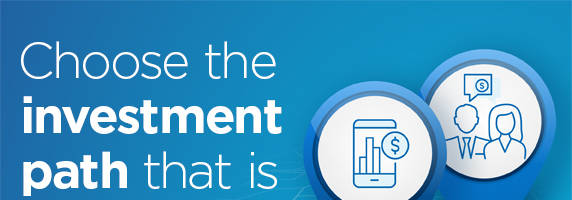Understanding Different Types of SBA Loans
Whether you're starting, expanding or acquiring a new business, navigating small business financing can be challenging. The Small Business Administration (SBA) offers various loan programs to meet the diverse needs of entrepreneurs. As a preferred lender, CommunityAmerica Credit Union provides a range of SBA loans to help your small business succeed. Understanding the different types of SBA loans is crucial to helping you find the right fit for your business needs.
There are numerous types of SBA loans available. Below, we break down some of the most common:
Types of Loans
SBA 7(a) Loans
The 7(a) loan program is the SBA’s flagship business loan program for both start-up and existing small businesses. It provides government-backed financing for various general business purposes. The maximum amount for a 7(a) loan is $5 million.
Uses:
- Acquiring, refinancing, or improving real estate and buildings
- Short- and long-term working capital
- Purchasing and installing machinery and equipment
- Purchasing furniture, fixtures, and supplies
- Full or partial changes in business ownership
- Debt refinancing
Benefits and Features:
- Competitive interest rates
- Flexible use
- Long loan terms
- Lower down payments than conventional counterparts
Considerations:
- Fees: Borrowers should anticipate various fees, such as a down payment, guarantee fee, and lender-specific charges.
- Collateral: For substantial loan amounts, lenders often request collateral to secure the loan.
- Down Payment: Be prepared for a sizable down payment, which can reach up to 30% of the total loan amount.
- Personal Liability: In the event of default, the lender has the right to claim your collateral to recover the loan amount.
SBA 504 Loans
The 504-loan program provides long-term, fixed-rate financing for major fixed assets. It can be used for acquiring or improving commercial real estate or purchasing certain types of equipment. Typically, 50% of the project cost is financed by a credit union or bank, 40% by the SBA (capped at $5.5 million), and 10% by the borrower. This approach helps businesses secure the funding they need with a lower upfront investment.
Uses:
- Purchasing existing buildings or land
- Constructing new facilities
- Acquiring long-term machinery
- Improving or modernizing land, streets, utilities, parking lots, landscaping, and existing facilities
Benefits and Features:
- Low down payment
- Long loan term and amortization
- Larger limits on total project costs
Considerations:
- Complex Application Process: Applying for a 504 loan involves coordination with both a lender and a CDC, making it more time-consuming and intricate compared to other loan types.
- Restricted Usage: A 504 loan is specifically designed for financing fixed assets like equipment or commercial real estate and cannot be used for working capital or inventory.
- Stringent Eligibility Requirements: Businesses must satisfy strict criteria, including creditworthiness, revenue benchmarks, and project feasibility, to qualify for a 504 loan.
- CDC Coordination: Securing a 504 loan requires partnering with a CDC, adding an extra layer of complexity to the process.
SBA Express Loans
The SBA Express Loan Program is designed to provide small businesses with quick access to capital. This program offers a streamlined application process, allowing for faster approval times compared to other SBA loan programs.
Uses:
- Borrow up to $500,000 for immediate working capital needs
- Purchase inventory and supplies
- Cover short-term operational expenses
Benefits:
- Quick approval
- Flexible terms
- Interest rate negotiation
Considerations:
- Higher Interest Rates: Express loans often come with elevated interest rates, resulting in higher overall repayment costs compared to other loan options.
- Restricted Eligibility: Individuals with poor credit may struggle to qualify or face more stringent terms when applying for express loans.
- Personal Guarantee: Borrowers are typically required to provide a personal guarantee, risking their personal assets in the event of loan default.
Am I Eligible for a Small Business Loan?
Most small businesses are eligible for SBA loans, provided they meet certain criteria. To qualify, businesses must:
- Operate as a for-profit business
- Be located in the United States
- Be owned by U.S. citizens or lawful permanent residents
- Use the loan proceeds for approved purposes
- Be considered “small” under SBA standards, which are defined by the number of employees or annual receipts, depending on the industry
- Meet alternative size standards, which require businesses to have a tangible net worth and meet specific income requirements
Where to Apply
CommunityAmerica Credit Union is dedicated to helping small businesses secure the funding they need. Whether you're looking to expand, purchase equipment, or manage working capital, we offer a range of financing options tailored to your business goals.
For more information on where to apply, check out our SBA Loan page. Speak to one of our experienced Relationship Managers at 913.905.6673, request a call or visit your nearest branch location.









